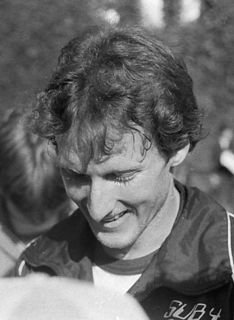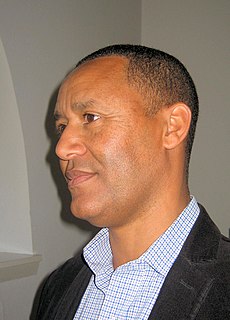A Quote by RuPaul
We humans are still a very primitive culture, and it's one of the traps we've fallen into over the course of our lives - to forget our history. That's why George Orwell's 'Animal Farm' is so profound. It chronicles our short memory.
Related Quotes
The word of God is definitely above culture, in terms of what or who should have authority in our lives. However, we must remember that we are within culture, and our calling in Christ is to play our part in the redemption and transformation of individuals and cultures. I believe the recent history of the religious subculture teaches all too clearly that unless we are moving forward in seeking the genuine transformation of culture, then we are standing still and it is transforming us.
We humans are in such a strange position—we are still animals whose behavior reflects that of our ancestors, yet we are unique—unlike any other animal on earth. Our distinctiveness separates us and makes it easy to forget where we came from. Perhaps dogs help us remember the depth of our roots, reminding us—the animals at the other end of the leash—that we may be special, but we are not alone. No wonder we call them our best friends.
As for the primitive, I hark back to it because we are still very primitive. How many thousands of years of culture, think you, have rubbed and polished at our raw edges? One probably; at the best, no more than two. And that takes us back to screaming savagery, when, gross of body and deed, we drank blood from the skulls of our enemies, and hailed as highest paradise the orgies and carnage of Valhalla.
Like our physical bodies, our memory becomes out of shape. As children, we are constantly learning new experiences, but by the time we reach our 20s, we start to lead a more sedentary life both mentally and physically. Our lives become routine, and we stop challenging our brains, and our memory starts to suffer.
it is clearly evident that our path travels through a valley of teas well known to all farm workers, because in all valleys the way of the farm worker has bene one of sacrifice for generations. Our sweat and our blood have fallen on this land to make other men rich. This Pilgrimage is a witness to the suffering we have seen for generations.
At age three, if you have a still-growing brain, it's a human behavior. In chimps, by age three, the brain is formed over 90 percent. That's why they can cope with their environment very easily after birth - faster than us, anyway. But in humans, we continue to grow our brains. That's why we need care from our parents.


































